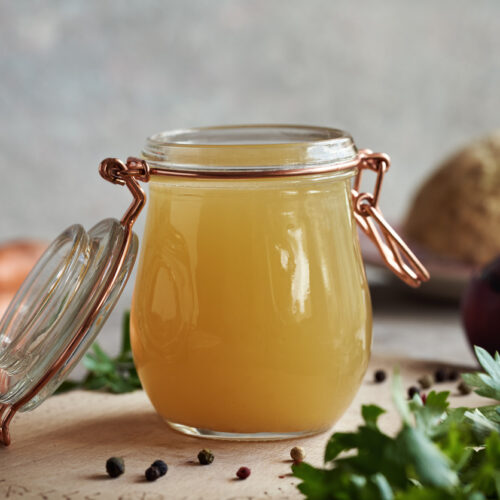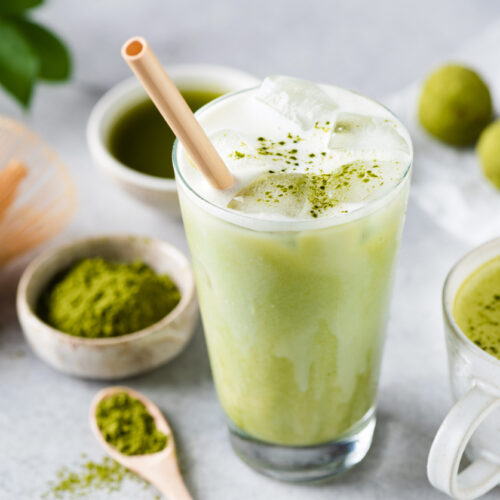
Deficiencies in these essential nutrients are common – but they're easy to avoid.
Iron
Why: Oxygen transporter. Iron is an integral part of haemoglobin which transports oxygen around, plus other transport systems and enzymes.
What if I don't have enough? Women of childbearing age need lots of iron. If you have heavy periods or don't eat much meat, you're at more risk. Symptoms of iron-deficiency anaemia (IDA) include fatigue, rapid heart rate and breathing on exertion, palpitations, impaired immunity and cognitive function. Blood tests can verify this deficiency though some health conditions, dehydration and strenuous exercise can alter results.
How to get it: Red meat, fish and poultry contain haem iron. Non-haem iron (less easily absorbed) sources include whole grains, vegetables, beans and lentils. An iron-fortified breakfast cereal plus one serving of red meat provides half your iron needs.
Fibre
Why: Keeps you going! Encourages movement of wastes through the gut; slows food absorption stabilising blood glucose and insulin levels; may decrease LDL or 'bad' cholesterol levels.
What if I don't have enough? A low intake may produce no obvious signs, though constipation is possible.
How to get it: Fruits, veges, whole grains, beans, peas, nuts and seeds are all good sources. One piece of fruit, plus a cup each of stir-fried veges and brown rice provides 30-40% of your fibre needs.
Iodine
Why: Iodine is a component of thyroid hormones needed for normal body functioning, growth and development.
What if I don't have enough? Most of our locally produced foods lack iodine due to low soil levels. An enlarged thyroid gland in the neck (goitre) is the earliest sign of an iodine deficiency.
How to get it: Seafood and seaweed are rich in iodine. Low-fat milk and eggs also provide iodine: 2-3 servings of dairy products (eg. a glass of milk or pottle of yoghurt) provide half your needs. Keep your use of table salt down, but make iodised salt your first choice when using salt.
Vitamin D
Why: Gatekeeper for bones. Regulates blood calcium levels by altering calcium absorption from our gut.
What if I don't have enough? Food sources of vitamin D are limited, so sunlight exposure to skin is our main source. Limited UV exposure through staying indoors, wearing head-to-toe clothing, extensive sun-block use, or living where UV exposure is minimal for long periods (eg. Southern New Zealand during winter) can impact vitamin D status. A deficiency causes calcium mobilisation from bones. Blood tests will confirm whether you are at risk.
How to get it: Expose hands, arms and face to the sun for a few minutes each day (early morning or late afternoon). Darker skinned people need a little longer. Those living in the lower South Island may need to get more vitamin D from food, to balance low UV exposures. Tinned salmon is a rich source, one egg provides 20% of needs, margarine makes a helpful contribution.
Selenium
Why: Protects the body. Integral to various antioxidant systems.
What if I don't have enough? Most locally-produced foods lack selenium. Deficiency generally produces no obvious signs; but most New Zealanders will benefit from increasing our intake.
How to get it: Fish, seafood, meat, poultry, eggs and bread are good sources. One serving of tinned salmon provides a third of your daily needs. Two Brazil nuts provide twice your needs.
Vitamin B12
Why: For DNA synthesis, normal brain function and blood function.
What if I don't have enough? Vegetarians and vegans are susceptible to B12 deficiency, because it's found in animal-derived foods. Symptoms include dizziness, paleness, shortness of breath, fatigue and anaemia. Untreated, it can lead to neurological symptoms of numbness and tingling in extremities and permanent, irreparable damage. A blood test will tell you if you're at risk.
How to get it: A serving of fish can give you between 50-100% of your daily needs. A glass of milk, a tub of yoghurt and a chicken drumstick provides 100% of needs.
Do we need supplements?
Many people take supplements as 'insurance' in case they're not getting all the vitamins they need through food. But unless you have special needs (eg. are pregnant or vegan), the best way to get all the nutrients you need is through a varied diet of real food. Whole foods not only supply all the nutrients we know we need, but also a whole plethora of other phytochemicals and protective substances we know are good for us, which science is only just beginning to understand. So think 'variety' for the best insurance possible!
Tips:
- Choose an iron-fortified breakfast cereal if you have a history of iron deficiency.
- Eat a high-fibre breakfast – two pieces of grainy toast with 1/2 cup of fibre-rich baked beans or muesli with a sliced banana provides half your fibre needs.
- Grab a pack of sushi! Two pieces provide your entire iodine needs.
- One small tin of tuna provides 100% of your daily vitamin D needs!
- Eat two brazil nuts on days you don't eat fish to get all the selenium you need.
- One beef/lamb steak provides over 100% of your B12 needs. Vegans and vegetarians who don't eat dairy may need supplements.
www.healthyfood.com










